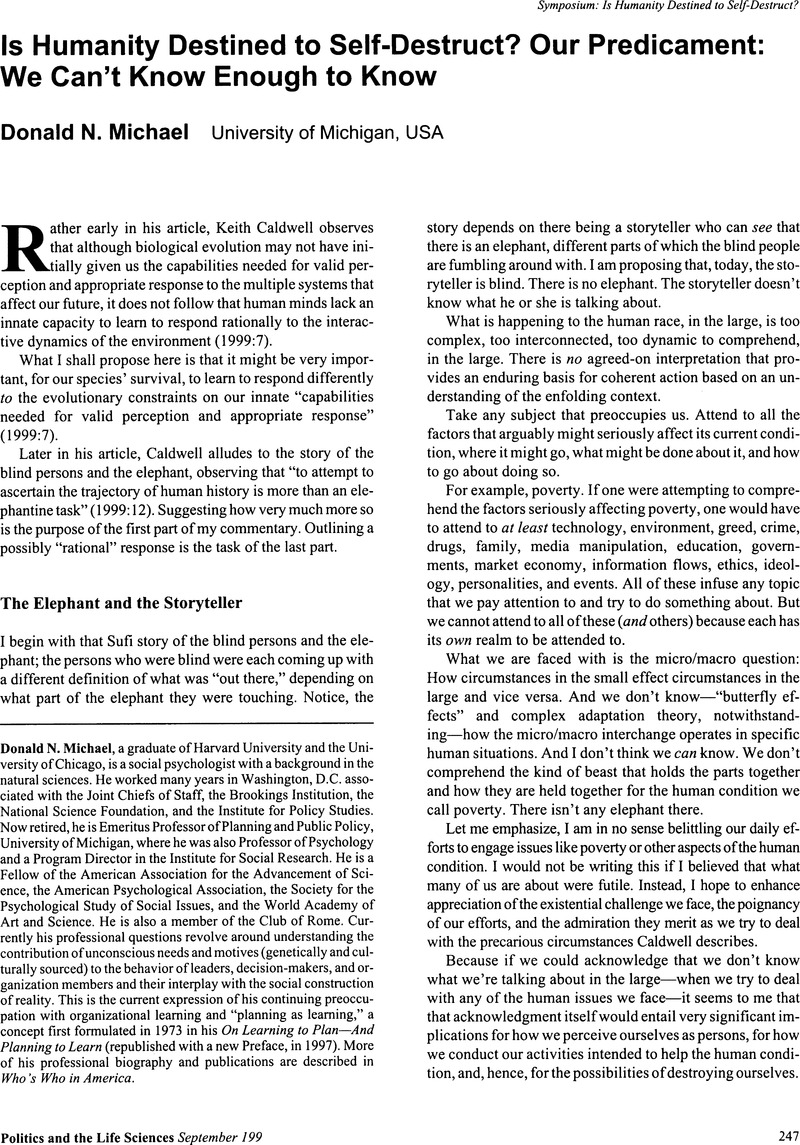No CrossRef data available.
Article contents
Is Humanity Destined to Self-Destruct? Our Predicament: We Can't Know Enough to Know
Published online by Cambridge University Press: 17 May 2016
Abstract
An abstract is not available for this content so a preview has been provided. Please use the Get access link above for information on how to access this content.

- Type
- Symposium: Humanity and Self-Destruction
- Information
- Copyright
- Copyright © Association for Politics and the Life Sciences
References
Caldwell, L.K. (1999). “Is Humanity Destined to Self-Destruct?” Politics and the Life Sciences 19: 3–14.CrossRefGoogle Scholar
Michael, D. (1984). “Too Much of a Good Thing: Dilemmas of an Information Society.” Technology Forecasting and Social Change 25: 347–54.CrossRefGoogle Scholar
Michael, D. (1993). “Governing by Learning: Boundaries, Myths, and Metaphors.” Futures 25 (1): 81–89.CrossRefGoogle Scholar
Michael, D. (1997). Learning to Plan—And Planning to Learn. Alexandria, VA: Miles River Press.Google Scholar
Neumann, E. (1973). Depth Psychology and a New Ethic. New York: Harper and Row Torchbooks.Google Scholar
Scharfstein, B-A. (1989). The Dilemma of Context. New York: New York University Press.Google Scholar


